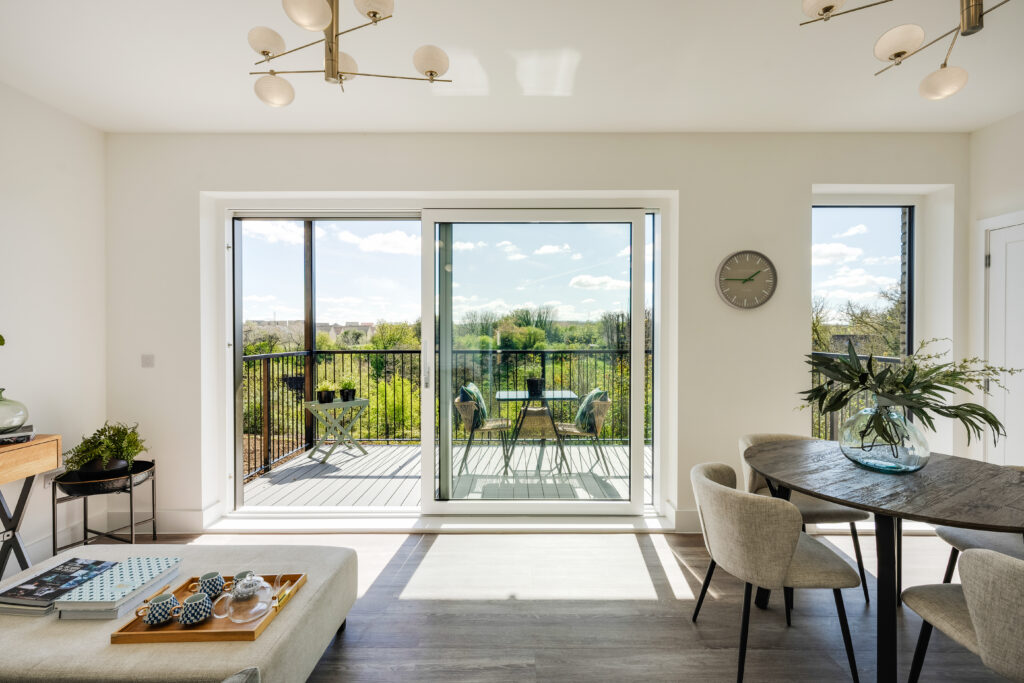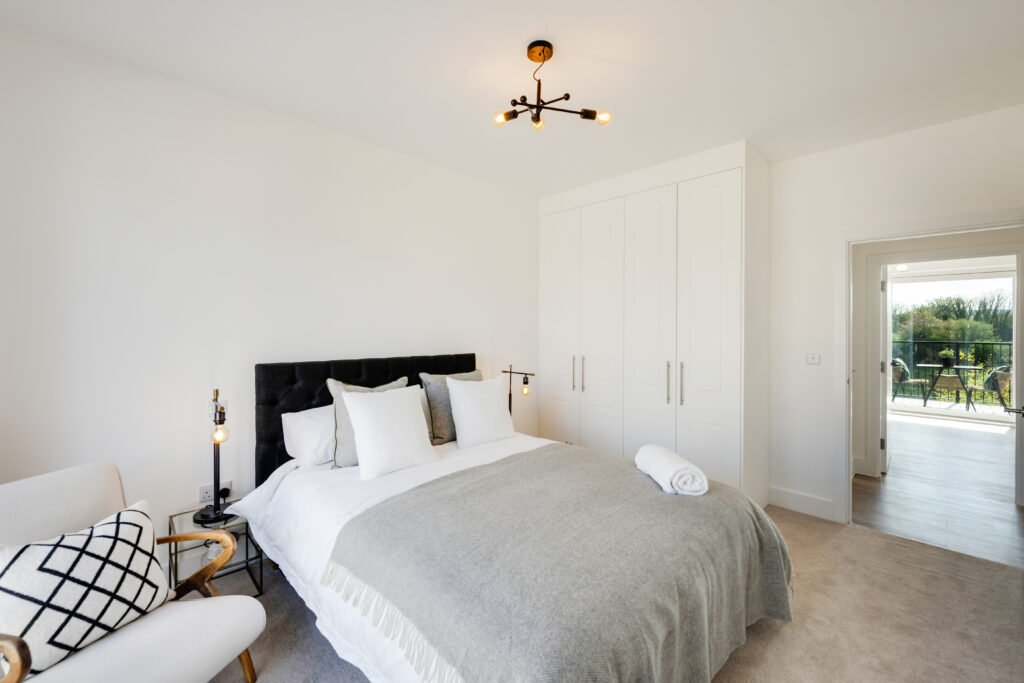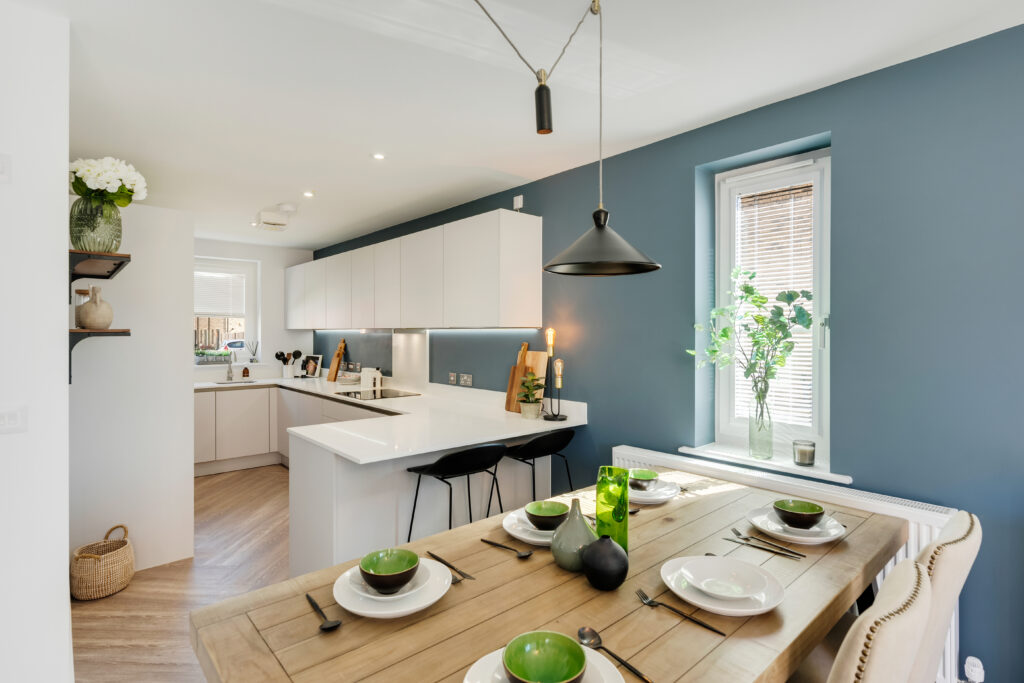Pioneers in Development and Regeneration
Acorn Property Group is an independent development and regeneration specialist with offices in London, Bristol, Cardiff, Exeter, and Cornwall. Known for their ‘Different by Design’ ethos, Acorn has consistently delivered residential-led refurbishment and new build schemes that stand out for their imaginative design and high quality. The company’s experienced management, construction, and sales teams have made Acorn one of the most successful property developers in the UK.
Acorn has a strong focus on providing an interesting, complementary and sustainable architecture that adds quality and a sense of purpose to its immediate environment. Our in-house team includes architects, interior designers, town planners, surveyors and construction managers who can be trusted to make the most of every opportunity. Together with our brand, sales and marketing teams, we specialise in creating and delivering the best scheme for every individual site and community and have a broad portfolio including sites in urban and rural locations, brownfield and greenfield sites, new build and conversions including listed buildings and numerous residential and commercial mixed-use sites.
The award-winning transformation and regeneration of the historic Butler, Tanner and Dennis printworks site in Frome, Somerset, is a great example of our approach and commitment to creating excellent quality homes and helping to revitalise communities. It also demonstrates how phasing can be employed to finance and manage large-scale developments efficiently, ensuring financial viability and adaptability to various changes from market conditions to construction style.
Our Vision for The Old Printworks
Frome is one of the most sought-after towns in the West Country. It’s a quirky and artistic market town boasting a creative artisan atmosphere and vibrant independent spirit. The first Sunday of every month the town hosts ‘The Frome Independent’ where the shops all open and the cobbled streets become filled with stalls belonging to independent traders with stylish crafted goods, antiques and street food – you can easily spend a day getting lost there.
Established in 1935, the Butler, Tanner and Dennis printworks was an iconic landmark in Frome, known for producing the first-ever Penguin paperbacks. Over its 79-year history, the printworks published works by literary giants such as Ian Fleming, Agatha Christie, and Ernest Hemingway. A short walk from the town centre, the printworks’ closure left a significant void in the local community, turning the once-bustling site into a decaying ruin.
Working with JV partners London & County, Acorn embarked on this project in 2019, first clearing the 10-acre site of its huge industrial buildings, decontaminating the ground and setting out how we wanted to transform this derelict landscape into a vibrant residential community with new homes and local amenities while honouring its rich history.
The Role of Phasing
We have a longstanding and successful relationship with United Trust Bank and Senor Director Jonathan Nail. UTB has funded over 24 of our developments in the last 10 years. A variety of schemes mainly across the West Country and Wales creating everything from larger luxury homes on exclusive developments of less than 10 homes up to 40-50 unit apartment blocks in the most sought after coastal locations. The Old Printworks is by far the largest scheme we have undertaken with UTB, and phasing along with collaborative working with London & County has been crucial to its success.
Phasing is an excellent way for housebuilders to move up to developing larger sites by dividing the build into more manageable stages. Lenders like it if the scale of the individual stages are broadly consistent with the borrower’s previous experience, even if the entire project is a significant step up in the total number of units being created. It’s also an excellent way for housebuilders to maximise their loan facility whilst keeping their committed equity to a minimum. In fact, phasing can deliver several benefits.
Minimising Equity, maximising opportunity
By minimising the amount of cash, we had to commit to this scheme we have been able to work on several other projects at the same time whilst avoid taking on expensive investor debt and profit share arrangements. More importantly, phasing enabled us to step up to a significantly more ambitious project whilst remaining flexible and adaptable to change.
Improved Cash Flow
Phasing enabled us to generate revenue incrementally. Selling homes in initial phases provided the capital necessary to repay loans and fund subsequent phases, thereby improving overall cash flow. While the phased approach might extend the overall timeline, and you do lose some of the economies of scale, the financial benefits far outweighed any drawbacks.
Risk Mitigation
Breaking the project into smaller parts allowed us to assess each phase’s performance and feasibility before moving forward. This risk mitigation strategy reduced financial exposure and enabled adjustments based on real-time market conditions, which was particularly valuable given the project’s scale and complexity
Market Responsiveness and Adaptability
A phased approach allowed us to adapt to changing market conditions. For instance, while the initial units were timber-framed, we switched to traditional construction methods by Phase 3 to enhance quality and logistics. This flexibility ensured that the development met market demands and maintained high build standards throughout.
Enhanced Project Management
Phasing simplified project management by allowing us to focus on smaller, more manageable segments. This improved oversight, coordination, and quality control, resulting in a superb end product that met both Acorn’s and the community’s expectations.
Phasing offers developers the opportunity to take on larger schemes whilst committing minimum equity, improving project cash flow and mitigating risk for them and their lender. Phasing can enable housebuilders to commit to projects now they might previously have thought were a long-term aim. As the residential property market continues to improve, I believe phasing will become an increasingly useful strategic tool helping developers seize opportunities and achieve long term growth and success.
The Phases of The Old Printworks Development
The Old Printworks offers a variety of homes designed to cater to modern living. The completed scheme will provide 157 residential units plus retail and recreational space with a GDV of around £50m.
UTB has provided c£36m of funding over 4 phases. By dividing the scheme into phases Acorn has been able to ensure that each part of the project aligns with the overall vision as well as meeting community needs.
Acorn Green represents our commitment to implementing the best possible design and technologies to further drive down the carbon footprint of our homes, moving towards long-term sustainable housing in communities.
At The Old Printworks, we adopted a fabric-first approach to ensure that we maximise the performance of our building envelope while continually looking at how we can enhance sustainability through the use of systems that aim to reduce carbon footprint and lower energy bills.
This has been demonstrated by how the Green credentials have continually improved with each phase and year that has passed whilst on site. For example in Phase 3 Solar PV Panels became fitted as standard as opposed to being an optional extra.
Other features include electric car charging points, low power lighting and high performance window systems which all contribute to an EPC rating of A or B. Bird and bat boxes and specialist bee bricks have also been fitted on site to further enhance biodiversity.
Phase 1: This initial phase involved site acquisition, demolition of existing industrial buildings, decontamination, and groundworks. Preparing the site for redevelopment was a monumental task, but it set the stage for the transformation to come.
Phase 2: The first build phase included 51 residential units and 4,500 square feet of commercial space. Funding for this phase was secured against its GDV and the land value for subsequent phases. The loan drawn in late 2019 was repaid by spring 2022.
Phase 3: This was the largest phase, comprising 62 residential units. Drawn in late 2021, the loan for this phase was repaid in summer 2023, with sales generating nearly £21 million.
Phase 4: Currently underway, this final phase includes 38 units. The loan drawn in March 2023 is nearing completion and the build is due to be finished by the end of 2024.



